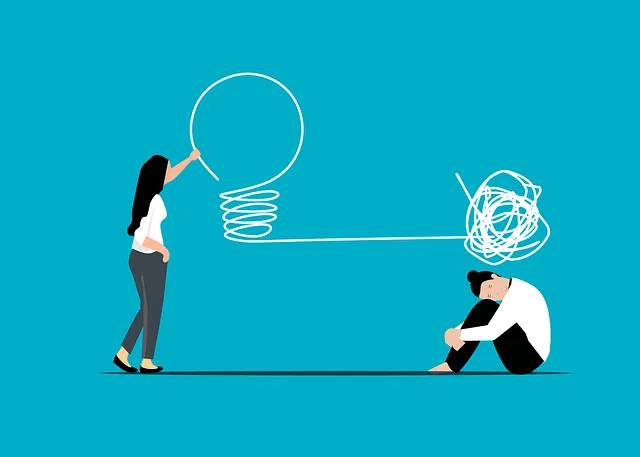Mental wellness journaling, promoted by the Kaiser Permanente mental health center in Boulder, is a growing trend that offers individuals a powerful tool for self-reflection and personal growth. By consistently recording thoughts, feelings, and experiences, people can explore their mental state, gain insights, facilitate emotional healing, and track progress. This practice supports mental wellness coaching programs and improves overall mental health by fostering resilience and effective thought processing. The Kaiser Permanente center recommends finding a quiet space, selecting an inspiring journal, and setting consistent times for journaling, with provided prompts and workshops to enhance its benefits.
“Unwind your mind and embark on a journey of self-discovery with Mental Wellness Journaling. This powerful tool, backed by research and advocated by the esteemed Kaiser Permanente Mental Health Center in Boulder, offers a peaceful sanctuary for introspection and growth.
In this article, we explore the benefits of regular journaling practices, from enhancing mental health to fostering personal development. We provide practical tips inspired by the center’s expertise, guiding you towards creating a personalized journaling routine that promises to transform and enrich your life.”
- Understanding Mental Wellness Journaling: A Powerful Tool for Self-Reflection and Growth
- The Benefits of Regular Practice: How Journaling Can Improve Your Mental Health, According to Research
- Creating Your Journaling Routine: Practical Tips from the Kaiser Permanente Mental Health Center in Boulder
Understanding Mental Wellness Journaling: A Powerful Tool for Self-Reflection and Growth

Mental wellness journaling is a powerful tool for self-reflection and personal growth, gaining popularity at Kaiser Permanente mental health center reviews Boulder. It involves consistently recording thoughts, feelings, and experiences in a dedicated journal, offering individuals a safe space to explore their mental state. By documenting emotional responses to daily events, challenges, and achievements, one can gain valuable insights into their psychological landscape.
This practice facilitates the development of mental wellness coaching programs and enhances emotional healing processes. Through regular reflection, individuals can identify patterns in their thinking, uncover underlying beliefs, and challenge negative thought cycles. Additionally, journaling provides an opportunity to track progress over time, celebrate achievements, and cultivate gratitude. Communication strategies, often explored through therapy sessions, can also be applied to the journaling process, allowing for deeper self-awareness and improved interpersonal connections.
The Benefits of Regular Practice: How Journaling Can Improve Your Mental Health, According to Research

Journaling has emerged as a powerful tool for enhancing mental wellness, backed by numerous studies conducted even at renowned centers like the Kaiser Permanente mental health center in Boulder. Regular practice can significantly improve overall mental health and well-being. Research suggests that self-care practices such as journaling foster resilience building, helping individuals process their thoughts and emotions more effectively. By providing a space for introspection, journaling allows people to reflect on their experiences, which can be particularly beneficial in managing stress, anxiety, and even depression.
This simple yet profound habit also serves as a form of risk assessment for mental health professionals, offering insights into an individual’s emotional state. The act of putting pen to paper—or fingers to keyboard—can help uncover hidden patterns, triggers, and coping mechanisms, enabling personalized strategies for maintaining mental balance. Incorporating journaling into daily routines encourages self-awareness, promoting better understanding of one’s thoughts and feelings, which is essential in nurturing mental health and resilience.
Creating Your Journaling Routine: Practical Tips from the Kaiser Permanente Mental Health Center in Boulder

At the Kaiser Permanente Mental Health Center in Boulder, creating a journaling routine is recognized as an effective stress reduction method and mood management tool. They encourage individuals to view it as a personal practice, tailored to their unique needs and preferences. Start by selecting a space that feels calming and quiet, free from distractions. Choose a journal that inspires you – it could be colorful or minimalist, lined or unlined. Decide on a regular time each day or week to dedicate to journaling, ensuring consistency for maximum benefit. Some find the morning offers clarity, while others prefer winding down with reflection before bed.
The Mental Health Center also suggests incorporating specific prompts to enhance your practice. These might include writing about three things you’re grateful for, detailing a challenging experience and how it made you feel, or setting positive affirmations for the day ahead. Regularly reviewing past entries can provide valuable insights into your emotional patterns and progress in stress management workshops organized by the center. Remember, consistency is key; make journaling an integral part of your self-care routine.
Mental wellness journaling is a simple yet profound practice that, backed by research and endorsed by institutions like the Kaiser Permanente mental health center in Boulder, can significantly enhance your mental health. By integrating this routine into your lifestyle, you gain a powerful tool for self-reflection and personal growth. So, why wait? Start journaling today and begin to unravel the many benefits it has to offer. As reviewed by the Kaiser Permanente mental health center in Boulder, this practice is a game-changer for those seeking improved mental wellness.






